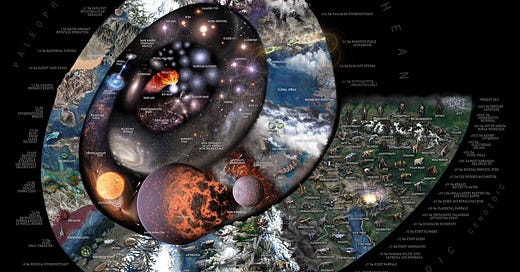OK, Daddy-O,
I think you’ve done it—you’ve figured out what’s making us all so stupid. And I really do mean all of us. “You cannot understand Western man or Western history, Western literature, art, or philosophy, without considering them in the context of faith.” But by gum, we’re sure going to try! What I find so amazing is that it’s not just atheists who seem determined to factor out God. Sophisticated believers, too, know instinctively to keep from invoking their faith if they want to be taken seriously in mixed company.
Matters of religion are so hotly disputed that we’ve trained ourselves over centuries to bracket them and get on with the daily chores of civil society. Voltaire, ever the cheerleader for irreligion, admired the London Stock Exchange because “there the Jew, the Mahometan, and the Christian bargain with one another as if they were all of the same religion, and bestow the name of infidel on bankrupts only.”
Turns out, this arrangement can be quite convenient for all parties. Of course, it can also create a situation where every matter of consequence, every conversation of vital significance, has to proceed without reference to God. In business, in academia, and above all in science, even the religious become functional agnostics for the duration of their work.
That’s how you end up with Georges Lemaître, a man of the cloth and a prime architect of modern cosmology, insisting that his Big Bang theory “is the antithesis of the supernatural creation of the world.” Lemaître was rushing to assure Albert Einstein that he had arrived at his conclusions by consulting Einstein’s own relativity equations, not the opening chapters of Genesis. But that just made it worse, since it sure looked like the good book and the textbook were starting to agree that the universe had a beginning.
Yet the aversion to religious logic goes so deep in the modern mind that it produced the astonishing spectacle of a Catholic priest, while describing the beginning of the universe, trying desperately to disabuse his colleagues of their misapprehension that his theory might have theological implications. And there’s poor Einstein, asking the obvious question: how on earth could it possibly not?
So, here’s the thing. Einstein was right about this. Lemaître was wrong. There’s a lot you can figure out just by reasoning in purely human terms, but sooner or later you’re going to run up against questions which, one way or another, have to be answered with reference to God. And yet the best and most obvious answers to those questions seem to be off limits for intellectuals—even those who believe them!
So I ask you, O wise one: why are Christians, of all people, so shy about advancing religious arguments? Are we afraid they won’t hold up? Or—more alarming still—have we lost the knack for talking about God as if he were real?
Love,
Spencer
Image: Pablo Carlos Budassi, CC BY-SA 4.0, via Wikimedia Commons.






We have been trained from a young age that the questions of God were not to be discussed in public. Our popular culture, all of it, only invokes God when they want us to do something: God is a lash for the peasants. This leads to those hilarious descriptions of Jesus Christ as a non-judging socialist. It also leads to young men and women being clueless about themselves and their purpose as husbands and wives, because Genesis describes them, echoed by Christ, in that way, and no cultural or political institution does so without contempt.
"Why are Christians, of all people, so shy about advancing religious arguments? Are we afraid they won’t hold up? Or—more alarming still—have we lost the knack for talking about God as if he were real?"
Ok. I think I have a pretty good response.
1) We totally made caricatures of ourselves by exploding this pyramid-scheme-Cutco-knife-sales-style evangelism in the 1990s. The people with whom we were sharing the good news were the ones doing the ministering by putting up with these weird soul winning sales tactics. We started to be Biffs for the Bible, committing social faux pas, and commoditizing salvation. The evangelical church lost its taste for peddling evangelism at the same rate the public felt like they were customers more than friends.
2) We've watered-down the gospel to make up for how obnoxious we were. In the neo-con Evangelist church era. However, the seeker-sensitivity movement has been a component of rapid church decline. Your old man has ranted about the desperate habits of dying churches with greater clarity.
3) We, the Church, allowed the divorce of higher education from Western Civilization. Simply put, we've forgotten our ideological inheritance. This is your wheelhouse. I’m sure you’re well aware of the consequences.
4) Finally, I think we’ve come to realize “That people don’t care how much you know, until they know how much you care.” Certainly, true empathy is more valued than information at the moment. We are mired in the world of knowledge, but we’re longing to spend time with people we love. In this particular regard, I think the Church has improved. Anecdotally, it seems like we’re getting better at showing up in hard moments and caring for people, before we awkwardly throw a tract at them and hit ‘em with the brimstone.
“If I speak in the tongues of men and of angels, but have not love, I am a noisy gong or a clanging cymbal.”